Dear friend,
I want to share some of the books I enjoyed (or didn’t so much) in 2023. Although I’m obsessive enough to track my reading both in a spreadsheet and on goodreads, I’m not at all systematic about what I read. Mood, season, book group deadlines, enough bombardment from marketing and recommendations, Daily Deals on Audible and the like are usually the main factors bubbling a book to the top of my TBR. So this retrospective mostly won’t reflect either the latest trends or my usual written themes. Still, good books are good books, so here are some my net dragged in this year, organized into some made up categories. These are shortened versions of my goodreads reviews so feel free to peek there for more details.
Enjoy, and do chime in with opinions and recommendations!
A category of its own
War and Peace by Leo Tolstoy
This book is not a novel but a length of exquisite tapestry cut off on either end because it had to be cut somewhere. It has Napoleon’s invasion of Russia as a rough centering point, and is embroidered with shocks of history and philosophy—but the weave of the tapestry is life itself. As my guide to War and Peace,
, likes to say, name a human emotion or life stage, and it is in War and Peace. The protagonists may be aristocrats, but they are humans too, and over the course of this story, everything they take for granted is challenged. And a few of them manage to find what they’re searching for.I read War and Peace over the course of a year, one short chapter a day. I inhabited that fabric of life alongside Andrei, Pierre, Natasha, Nikolai. They and their complexities were a reality in four dimensions. I also lived with the narrator’s—Tolstoy’s—voice, gentle and incisive, laying bare the intimacies and obsessions and faults and nobilities of these characters even while revealing his own.
If you’ve ever wanted to read War and Peace but felt intimidated by the length or complexity, think of it another way: can you follow the equivalent of a multi-season television drama with several protagonists and their families, who you get to know like friends, and whose arcs thread together at the most poignant, joyful, and painful moments of their lives? With scenes of comic relief, satire, and action for good measure? And as for prose, story and history alike told in a clear and patient voice you hardly notice is there? You can read War and Peace. If length is a barrier, or you want a different kind of reading experience, it’s not too late to join the 2024 version of Simon’s gentle chapter-a-day read along on Footnotes and Tangents, with weekly newsletters full of context and encouragement and community. See footnotes 1,2 for instructions and a bonus!
My most on-brand read
Ness by Robert Macfarlane ~ This story (prose, poem, play?) rises like the tide and the lichen around you as you read. It shapeshifts and shimmers. Utterly transporting.
It has special resonance for me because I’ve visited the place it tells about, a spit of land off the Suffolk coast called Orford Ness—a one-time nuclear testing site, now a nature reserve populated by hares the size of dogs, flotsam and jetsam, deep time—but I don’t think you need to have been there for this story to move through you like a dream.
Style-voice sweet spot
When a book makes both the intellectual and the pleasure centers of my brain buzz, I know I’ve found the sweet spot I’m always looking for in fiction: a convincing, immersive voice, unimpeachable sentence-level craft, and a story with enough color, tension, nuance, and movement to both savor and devour.
Milkman by Anna Burns ~ Emphasis on stylized: nonlinear, quirky, first-person narrative with repeated motifs that resonate into a multi-dimensional, darkly comedic, subtly devestating picture of a community distorted and suffocated by sectarian conflict. The fact that the cemetery is known as “the usual place” pretty much sums it up.
Tom Lake by Ann Patchett ~ A play within a play, a story within a story, and these are woven together so skillfully it makes you want to clap in delight. There are maybe a few moments where this is a little too evident, too tidied off with the bows of memory and narrative, but that's the stage manager talking, and the stage manager is part of the story. I never stopped wanting to listen, both because I wanted to know what would happen next in the past of this storyteller who could so easily be my mother, and because I wanted to be on that little island of time in the cherry orchard with the women who could so easily be my sisters.3
The Sentence by Louise Erdrich ~ Just the right amout of quirkiness and heart, a flawed but lovable and distinctive narrator, grappling with heavy topics without needing to provide answers, a heartwarming marriage, and oh what an ode to books. It was also a lovely seasonal serendipity, as the main storyline starts and ends a year just a week away from the November day I started reading. And hauntings are welcome around then, "when the fabric between worlds is thin and easily torn." And I like to think that if I were unfairly incarcerated I would also survive by reading all the books.
Gentle, atmospheric, layered
Foster by Claire Keegan ~ Oh what a quiet heartwringer. The story is simple, not dramatically tragic, and is mostly told through the observations and occasional, straightforward realizations of a pensive child. And when you get to the end you realize you’ve taken on the whole weight of growing up in a place you have no control over, of becoming yourself on terms not your own. A masterclass in how much emotional and narrative resonance can be stored in a boiling kettle, a woman’s shadow on the tile, a stalk of fallen rhubarb, a breeze whispering across the top of a well bucket.
The Summer Book by Tove Jansson ~ A skillful and loving evocation of a landscape from the author’s past, full of understated nostalgia but also quietly delving certain depths of human lifetimes and societal change. The main characters—a spunky girl at the beginning of her life and an equally spunky grandmother nearing the end of hers—are immersed in their slow, episodic present, the rhythms and mysteries and quirks of the island, making the layered summers their own kind of island out-of-time. And yet there’s a whole unspoken world on the fringes, occasionally making forays in, and always giving shape and shadow to the surface of the water. And time is indeed passing.
The Buried Giant by Kazuo Ishiguro ~ On a surface level, reading this felt like participating in a DND campaign set in post-Arthurian Anglo-Saxon Britain. The book also has the whittled-wood texture of fable. However, my favorite bits were the weirdest ones, the unexplained encounters and surreal images, the cross-purposes dialogue angling at something unseen, the lurking creatures. I almost wanted more of this as I was reading, but having finished, I see in the receding tide of the less memorable elements just how many of these eldritch presences and raw edges (among them the very real human hatreds and tendernesses and atrocities) and tantalizingly unfinished threads were embedded in the deceptively simple story. It may be fable-like, but it does not in fact leave you with the answers it feels like it’s tending toward.
Good long stories
Little Dorrit by Charles Dickens ~ By turns sweet, thought-provoking, and utterly hilarious. Little Dorrit herself is almost too boringly good in typical Dickens angel-at-the-hearth fashion, but she still has enough dimension and pluck to be sympathetic. And she is balanced out by an array of fascinatingly and tragically flawed characters, male and female; Mr Dorrit might be one of the most tragic characters Dickens wrote. So desperate for dignity and security, but never able to grow out of the indignity and insecurity ingrained in him by the society where a debtor's prison can exist, and never able to see past those internal bars to the love offered him and the misery inflicted by him. ~ But also, a touching romance, and no shortage of entertainment in the lovable and lampoonable eccentrics populating the book, not least of which are the Circumlocution Office and its Barnacles. Every time I read Dickens I remember what a comic genius he is.4
The Lacuna by Barbara Kingsolver ~ Sprawling, but every stage and setting of Harrison Shepherd’s quiet yet tumultuous life, from Mexico to North Carolina, had just the right amount of vivid and sympathetic detail; every supporting character came to life (Frida Kahlo and Lev Trotsky among them); the historical contexts were convincingly woven into the everyday narrative while still having the weight and arc of history (most notably the ideological aftermath of war and road the McCarthyism); and the pacing was just right (not something I can say about all of Kingsolver’s novels).5
Grabs you by the collar
Giovanni’s Room by James Baldwin ~ A study in anguish and desperation, fleeing in visceral fear from a self that has never been allowed to fully exist in the world, and dragging others down along the way. The novel gives us a kaleidoscope (across genders, sexualities, nationalities, race to some degree) of drifting people irresistibly drawn to and repelled from one another on the currents of their desire for connection and respite from the relentless shame of the world, straining between the cravings of both passion and the rigid, empty promises of normalcy.
Homegoing by Yaa Gyasi ~ I think what was most striking to me about this book was how concretely it illustrated the reality that our lives are shaped by all the ones before, and our stories are just continuations of one long, many threaded story, for better or worse. The book walked a fine line between creating real, complex individuals in this chain of stories, and having each one stand in, almost at the level of allegory, for different facets of Black experience across the history of oppression and resilience; most of the time I think Gyasi managed not to be reductive while still telling those stories for this purpose.
Birnam Wood by Eleanor Catton ~ There’s a certain shock factor to this book that scales with the near-hopeless severity of the kind of global mess the book is about, the kind of wake up call it’s supposed to be. For all the philosophical back and forth among the characters, in the end it’s no holds barred radical (or at least shocking) in a visceral, almost transcendant way. Transcendant of individuals and politics. The writing was good in a meticulous sort of way, but it was the overall effect that I’ll remember.
White Teeth by Zadie Smith ~ Wow what a ride. These are characters and characterization worthy of Salman Rushdie. The bold and uninhibited assertions made by an omniscient narrator about not only the lives of the characters but also of immigrants generally, societal trends, etc, had the potential to be heavy handed, but the sheer virtuosity of the storytelling made room for them.
Impactful non-fiction
The Fire Next Time by James Baldwin ~ Baldwin must have a mind like a steel trap, and also a very human heart. These letters on life with racial injustice were so readable and devastatingly relevant.
An Immense World by Ed Yong ~ Endlessly fascinating. Yong has done such a good job synthesizing a vast array of studies and concepts into a compelling and accessible narrative. The unifying idea/thesis of the Umvelt was brilliant, and the book's mission is important: to get us to consider how much we take our own way of sensing the world for granted and how many near-infinite other ways there are to be.
Killers of the Flower Moon by David Grann ~ The history relayed in this story made me physically ill. The sheer scale of depravity and genocidal greed, on both the part of individuals and the systems that enabled them to hemorrhage human life for money without a second thought, was one of the most chilling manifestations of racism I've ever read. Of course there are countless stories like this on even greater scales, but what this story accomplishes is to put it on an all too comprehensible and granular scale of a single town, a cluster of people killing and being killed, and the web of cold-blooded decisions to perpetuate the bloodbath that twitched and tangled inexorably out from there.
Leonardo Da Vinci by Walter Isaacson ~ An accessible cataloguing of Leonardo's delightfully mind-bending array of passions, foibles, wrestles, and epiphanies. And the number of times Isaacson had reason to say, "In thus and such insight Leonardo was two centuries ahead of his time..." I wish I had kept a tally.
Genre surprises
I will admit I’m something of a literary snob, but I had some fun chipping away at my prejudices with two romances that exceeded my (admittedly very low) expectations.
Book Lovers by Emily Henry ~ Once I calibrated my expectations on the prose, this was actually very sweet, entertaining, and satisfying—partly because I stopped caring about the craft and just let the banter and the primal satisifaction of story, chemistry, and imperfect but emotionally intelligent relationships take over. I.e., I had fun.
Friday’s Child by Georgette Heyer ~ A rollicking comedy of errors; reminded me more of Jeeves and Wooster with a dash of Jane Austen and just the right amount of heartthrob than a Bridgerton-style romance. And honestly the writing was solid, psychologically insightful, and funny. (If a little drawn out.) It did feel like a light, escapist read, but one that didn't distract or bore me with lack of craft.
Uneven
Three of the year’s darlings and a modern classic all left me wanting more.
Cuddy by Benjamin Myers ~ Experimental-poetic literary hype made me eager, and having visited Durham and Lindisfarne, I was curious about the central Saint Cuthbert. My expectations were only met piecemeal, more consistently in the first half than in the second half. It was less about Cuddy than about the people surrounding his memory and the place embodying it, and it grew increasingly distant from the initial historical pull as it got closer to the present. Overall it read a bit like a guided tour of the points of interest at the cathedral and from Cuthbert's history, dressed up in fictional packaging that was sometimes very beautiful and sometimes dismayingly forced.
Wide Sargasso Sea by Jean Rhys ~ Atmospheric and imaginative, and a fascinating look at post-slavery Jamaican (and colonial English) society, but didn’t quite settle for me. I think if the entire book had been from the perspective of Antoinette (Jane Eyre’s Bertha Mason), it would have worked a lot better. The Rochester persona was strangely inconsistent and difficult to understand. Maybe it was supposed to be that way—a fever dream eventually hardening into cruel coldness, unremitting desire for control and possession. But I mostly got whiplash.
The Marriage Portrait by Maggie O’Farrell ~ After thoroughly enjoying Hamnet, I was disappointed with this one. If the vivid sensory details and imagery in Hamnet threaded me deeper into the story, in TMP they were more like colorful patches embroidered onto an overlong, sometimes belabored, even one-note narration. I’m all for detailed evocation of setting and lyrical wandering, but if the underlying psychic reality of the characters isn’t doing it for me, I get impatient. And despite the evocative details that do indeed contribute to a sense of history-coming-to-life, the actual story and sensibility felt like something out of a YA novel, not the foreign country that is history.
Yellowface by R. F. Kuang ~ Juicy premise, relevant tensions, zeitgeisty to a fault, a bit too heavyhanded and repetitive to land as a satire for me. Clearly very wrapped up in the author's own experiences with the publishing industry. Makes you wonder if your own sense of self-preservation could ever be as rabid as Juniper Song's.
French practice
In my first year of learning French I’ve made gratifying progress in reading (much more readily than speaking) so I must flex and include some French here. Most of my reads were comics or graphic novels because the pictures do wonders, but I at least got an iconic novella under my belt.
Astérix Chez Les Bretons by Goscinny and Uderzo ~ I read this much too early in my learning because Astérix is all about wordplay, but I still found it hilarious—jokes about British stereotypes are twice as funny in French!
Le Petit Prince by Antoine de Saint-Exupéry ~ When I told French friends I was reading it, they pointed out that it's actually not that easy; it's really more for adults than children in the end, despite who the text ostensibly addresses. It's a pithy and touching call for adults to see the world more like a child, fresh and immediate. I think it's at its best when it relies more on simply-stated metaphor than on axioms. I also think I found it more moving in French because I was less able to get hung up on the tone, which is perhaps a bit stuffy in the English translation (I revisited it here and there and felt a contrast). As I deciphered the French words and the sentence structure and one of those fresh, childlike images emerged, it was easier to be surprised.
L’Atelier des Sorciers, Tomes 1-6 by Kamome Shirahama ~ Actually a manga translated from Japanese into French because I was borrowing it from a French friend. This series has two major things going for it: inCREDible art, and a really interesting magic system and sense of setting. It’s also a cute story with some tantalizing threads, even if the target audience may be fairly young.
Maybe I’ll finish Harry Potter et l’École des Sorciers in 2024!
In 2024 I’m also joining Simon’s other read-along of Hilary Mantel’s Cromwell Trilogy, some of my favorite books of all time.
And of course, Meryl Streep as audiobook narrator of Tom Lake is *chef's kiss.*
Ties to France/Europe in Little Dorrit were a pleasant surprise: although London is the center, Part 1 opens in Marseille (on a boiling hot August day that 100% echoed the August day on which I picked it up) and Part 2 opens in the Alps, where the travel routes of the English upper class are apparently so standardized that multiple main characters can happen upon each other at once.
Speaking of Barbara Kingsolver, Demon Copperhead is high on my list for 2024!

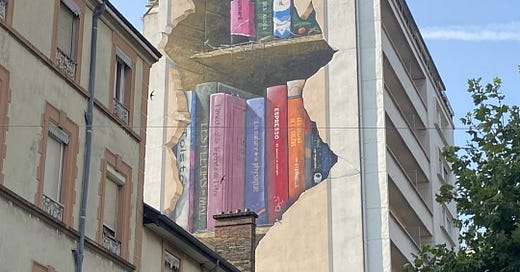


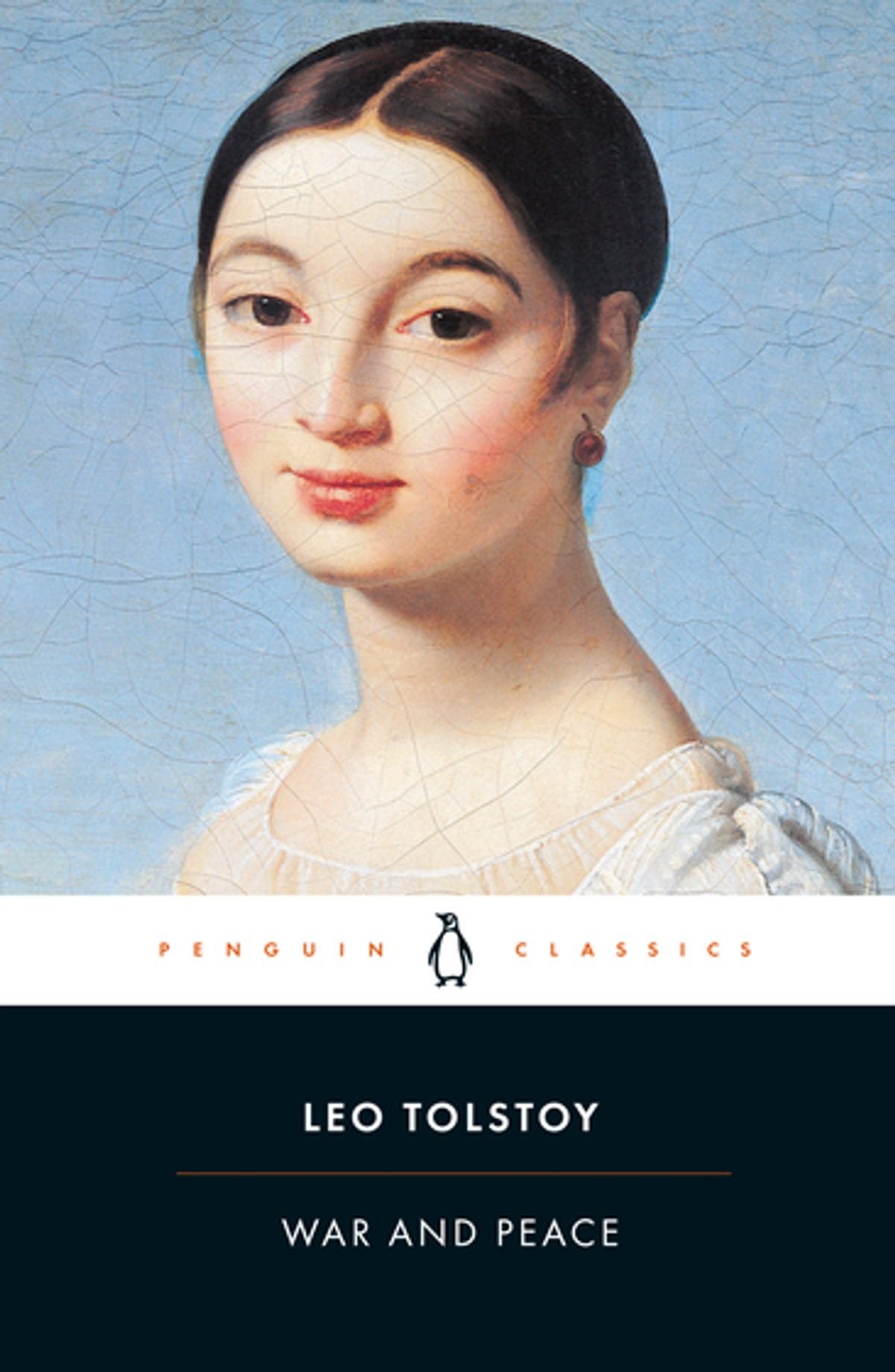
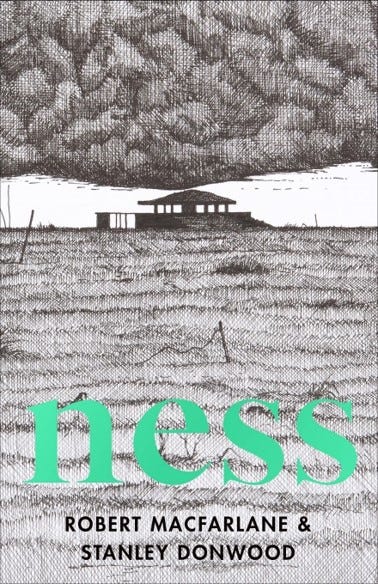
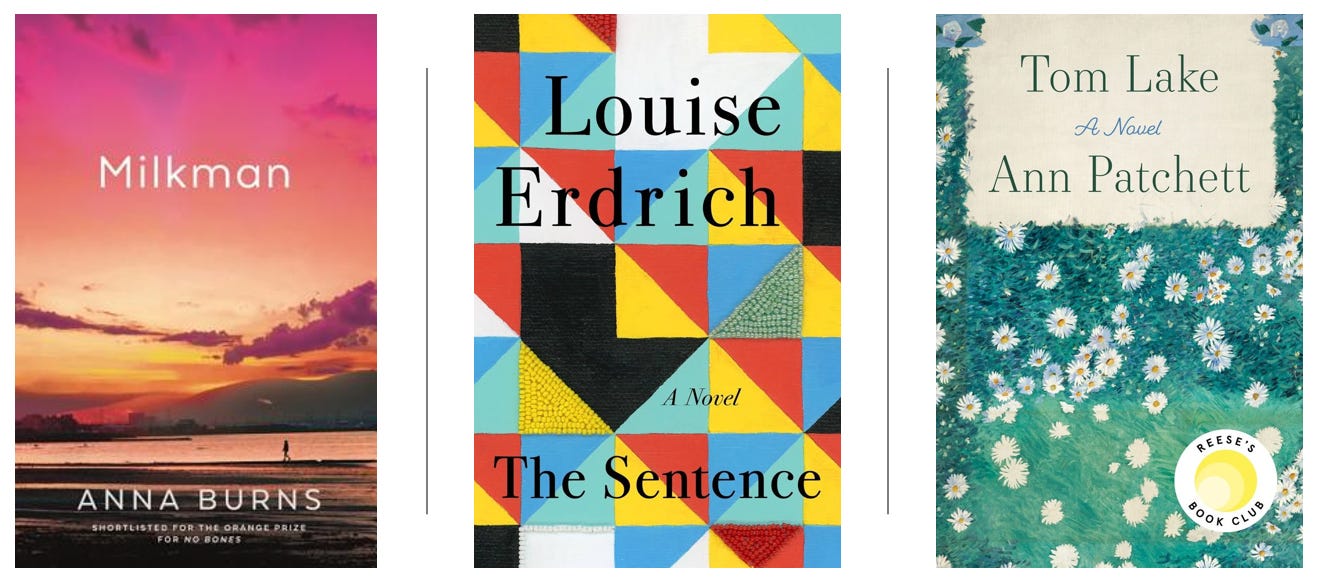





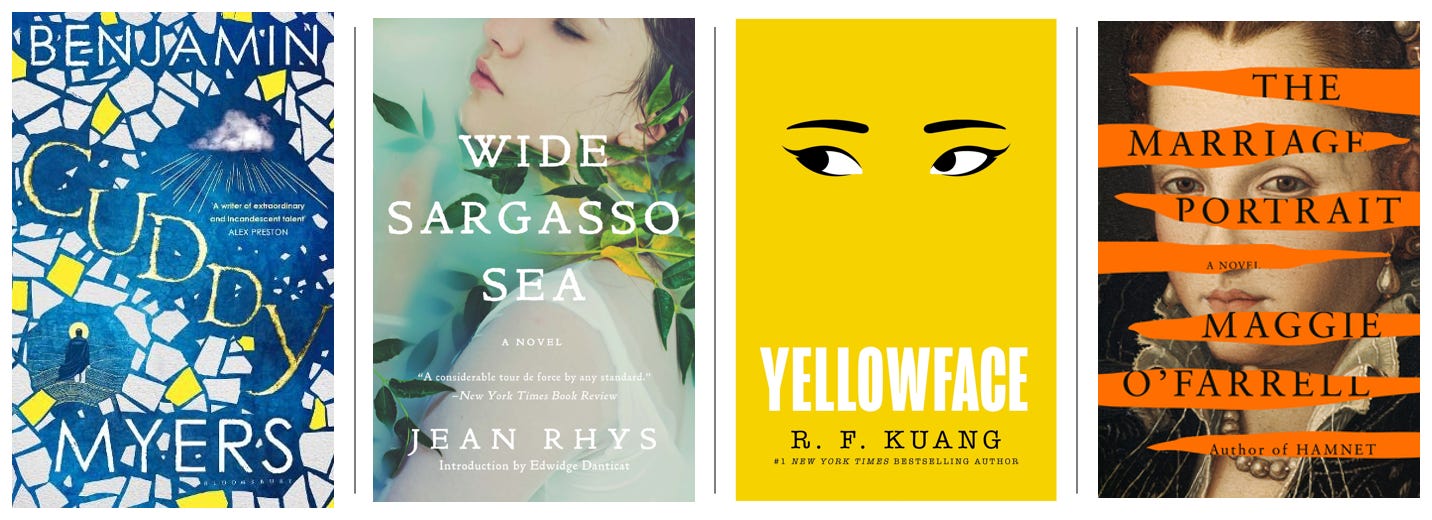


Ah you've read so many stunning books this year. I raise a 🥛 to Milkman and a 🥃 to War and Peace. A category of its own indeed. And The Marriage Portrait and Cuddy were my only two DNFs this year, for different reasons. I've read far less this year, but far more in many ways. And it has been a pleasure to grant myself and others the permission to read slowly. Looking forward to the next year, and thank for the shoutout for the readalongs!
Anne - great list. I see a few I might add to my own reading list. I am reading Demon Copperhead this year, immediately following David Copperfield. Should be quite interesting. Also, I am joining in both of Simon's slow-reads. Should be a great year.